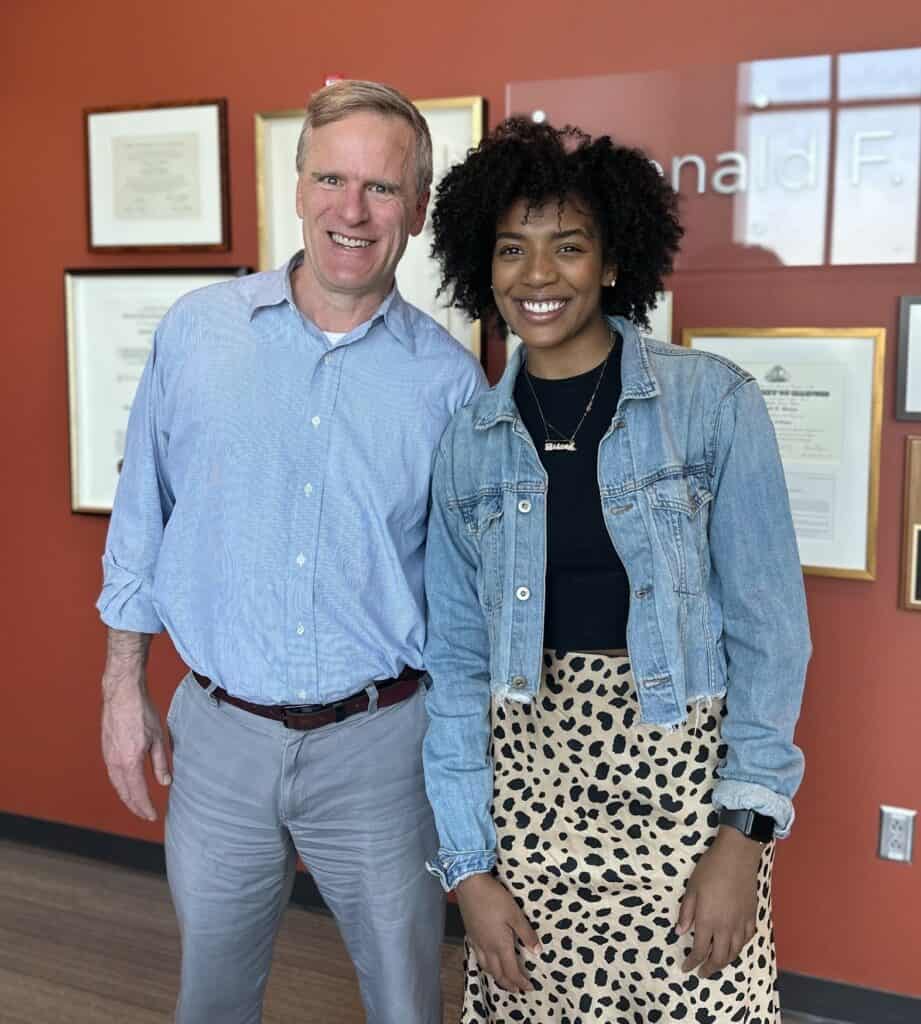
Adolescence is a critical time of physical and psychological development for young women and is also the time when breast tissue develops. While research has shown that environmental and genetic factors can increase the risk of breast cancer, little is known about how psychosocial stress experienced during puberty may also influence breast cancer risk.
Research has shown that Black women exposed to chronic stressors of microaggression and low socioeconomic status have a higher incidence of more aggressive breast cancers, like triple negative breast cancer (TNBC), compared to white women. What are some of the underlying causes that lead to this disparity? How does psychosocial stress influence the biology of breast cancer?
New Komen researcher Briana Banks, a doctoral student from the University of Chicago, is hopeful that her Komen-funded study will answer some of these questions. Banks is investigating how psychosocial stressors experienced by Black women during adolescence, such as racism, bullying, and economic disadvantages, may contribute to the development of breast cancer.
Banks and her mentor Matthew Brady, Ph.D., from the University of Chicago, recently received a Komen ASPIRE grant, a new award created to support research trainees from historically marginalized communities and help build a more diverse breast cancer workforce. For this project, Dr. Brady will oversee Banks’ research and serve as principal investigator.
“I know that Briana will be an excellent role model and spokesperson for addressing disparities in cancer research and health care policy,” says Dr. Brady.
Banks says her passion for disparities research comes from a desire to better understand the mechanisms controlling breast cancer and her unique perspective as a Black woman in a field where marginalized racial and ethnic groups are underrepresented. “I’ve always wanted to do research that directly impacted women that look like me,” she says.
Connecting Psychological Stress to Breast Cancer Risk
Through her Komen project, “Effects of Chronic Social Stress on Mammary Gland Development and Cancer Risk,” Banks will determine whether higher levels of a hormone called glucocorticoid (GC) during puberty may increase the risk of developing breast cancer. In Dr. Brady’s lab, she will study how GC affects the development of breast tissue and determine whether a GC-blocking drug can reverse the stress-induced changes that increase breast cancer risk.
“Through this project, I will identify what alterations are occurring in the body when exposed to chronic psychological stress,” Banks explains. “When your body is subjected to stress, how does that affect the way that your breasts develop?”
The long-term goal of her project is to support more preventive measures for Black women who are more likely than white women to experience high levels of psychosocial stress during puberty.
Increasing Community Involvement
Outside of the lab, Banks is a passionate advocate for scientific literacy and believes that researchers can help dismantle the medical distrust felt in the Black community by sharing scientific information in terms people can understand. She believes that this relationship is a partnership with members of the community that could help propel disparities research forward. As Banks explains, it’s all about building a bridge.
“Once the community gets more involved, it just gives rise to having them more involved in our research, as well as clinical trials,” she says. “And from there, we can cultivate that trust because they know that there will be no harm if they do participate. It’s essentially just creating that bridge.”
More community involvement could also strengthen the diversity of future breast cancer research.
“It’s important to get more people of color and from different ethnic backgrounds involved in research so we can have a wider range of the population to conduct research that is more representative of the world we live in,” says Banks.
A Brighter Future with Komen
Thanks to promising new researchers like Banks and mentors like Dr. Brady, there is much hope on the horizon for underserved communities as researchers work to advance personalized medicine and tailor breast cancer treatments to the unique needs of each patient. Ensuring that research in the breast cancer space is representative and benefits all is a key part of Komen’s Stand for H.E.R. – a Health Equity Revolution program, designed to decrease breast cancer disparities through focused interventions that break down the barriers that created these inequities for Black people.
Going forward, treatments that come from breakthroughs in personalized medicine will be key in conquering aggressive breast cancers like TNBC.
With support from Komen, Banks plans to dedicate her future career to eliminating disparities in breast cancer care while mentoring the next generation of scientists. “I’m so excited to be a part of Susan G. Komen,” she says. “And I am very grateful as well.”



